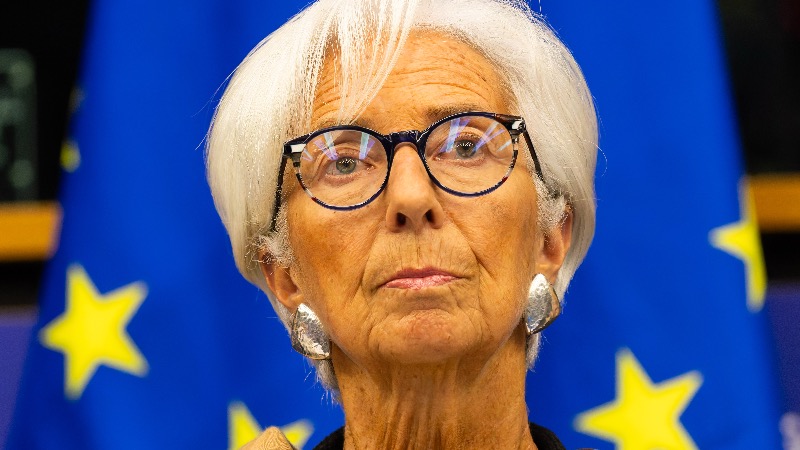 Image Credit: picture alliance / Contributor / Getty
Image Credit: picture alliance / Contributor / Getty European Central Bank President Christine Lagarde has expressed clear frustration with democratic processes that she believes are obstructing her efforts to introduce a central bank digital currency.
Speaking at the Bank of Finland’s 4th International Monetary Policy Conference, Lagarde characterized the digital euro’s delay not as a technical hurdle but as the result of slow-moving democratic systems.
Although she acknowledged that democracy is something Europeans “praise ourselves with,” she went on to describe it as “too much of a drag at a time when speed is really of the essence.”
She openly admitted that the legislative timeline has prevented her from completing the rollout of the digital euro within her term, stating, “Given the time that it takes… I will be gone.”
The digital euro project is still in its preparatory phase, with a decision expected soon on whether to proceed to pilot testing.
However, the European Central Bank has repeatedly said that a full launch is not guaranteed.
More: EU Parliament Agrees on Digital ID Introduction and Pro-Censorship Chief Suggests CBDC Integration
According to the institution, “the decision on whether to issue the digital euro will only be considered at a later stage once the European Union’s legislative process has been completed.”
Despite this, Lagarde referred to the launch as a certainty, saying “when the digital euro is eventually launched for good.” Her language suggests the outcome is already decided, regardless of what public institutions or lawmakers may conclude.
This approach has only heightened concerns about the underlying purpose and design of central bank digital currencies.
Unlike physical cash, which allows for anonymous and untraceable transactions, a digital euro would make financial activity fully visible to authorities.
Every payment could be tracked, recorded, and analyzed. Privacy advocates have long warned that CBDCs risk becoming tools for mass financial surveillance and control if strict protections are not in place.
Lagarde’s comments have added fuel to those concerns. By describing democratic oversight as a hindrance, she implied that public debate and legislative scrutiny are problems to be managed rather than essential parts of policymaking.
Her tone suggested that the biggest challenge is not designing the digital euro in a way that respects civil liberties, but getting around the delays created by representative governance.
The more these systems are treated as foregone conclusions, the less space remains for real debate over their risks. For many, her comments serve as confirmation that democratic resistance is not just being ignored but actively resented.
Alex Jones Discusses The Dancing Israelis From 9/11


